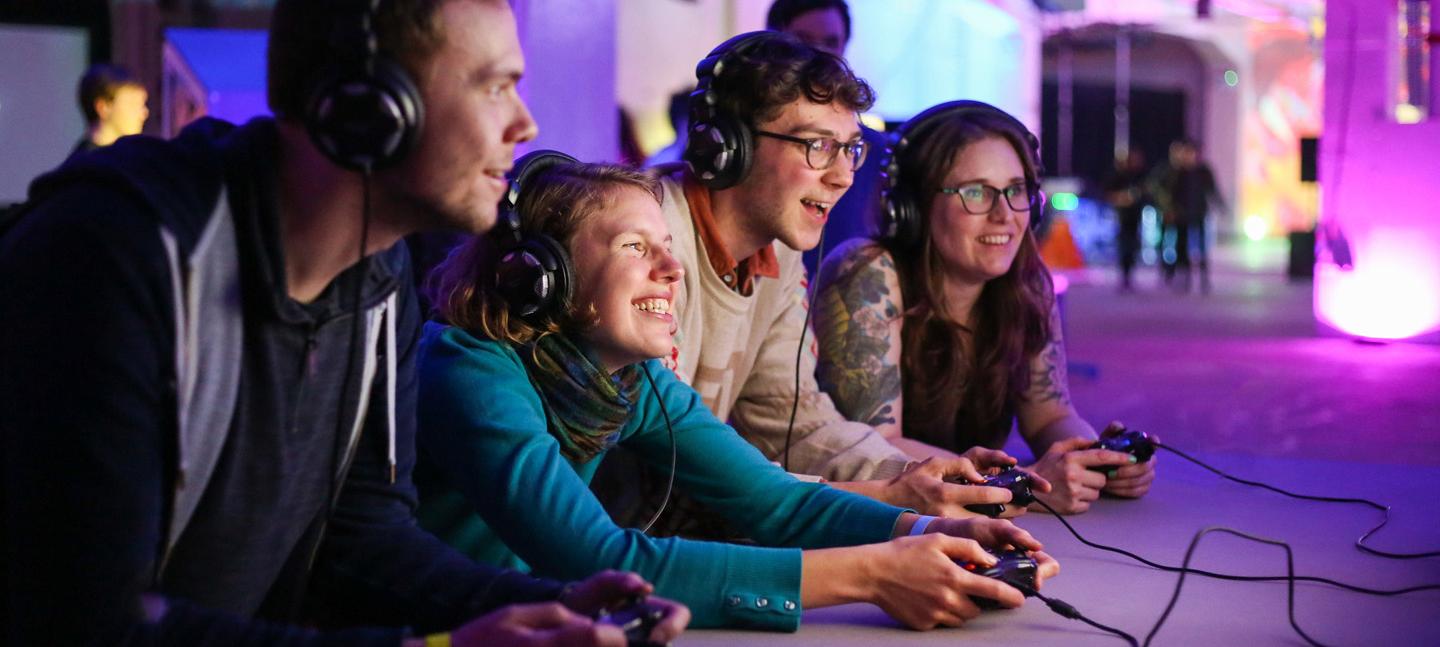"Gaming Disorder" has now been identified as a new mental health condition by the World Health Organisation (WHO), but digital designers see this classification as oversimplified, marking a tendency to blame computer games for society’s problems.
Are there in fact psychological and social benefits of playing games? Could gaming techniques be used to tackle major social challenges, such as rising mental illness and access to education? And how can computer games be used to question or provoke our political institutions, to challenge the norms and expectations of the digital present?
The event is hosted by Abertay University, Dundee. Abertay introduced the first degree in computer game design in the UK. Dundee is home to one-third of the country’s gaming companies.
Biographies
Malath Abbas is a game designer and founder of Biome Collective, Scotland’s first video game collective. Created in collaboration with mental health practitioners in Dundee, Biome Collective’s interactive installation for London Design Biennale 2018, Shpeel, encourages visitors to start a conversation about their emotional state without having to use words.
Joseph De Lappe is an artist and activist best known for his interventions exploring contemporary issues in politics. Together with Biome Collective, Joseph recently created Killbox, an interactive computer game about drone warfare. The game was nominated for a BAFTA Scotland award and has been shown at games festivals around the world. He is Professor of Games Research at Abertay University.
Dr. Kate Smith is a therapeutic practitioner and educator based in Dundee where she is involved in large-scale projects examining the role of counselling for people with long term health conditions.
Lynn Love (chair) is an artist whose work explores how games, events, and objects that utilise play can transform communities.






